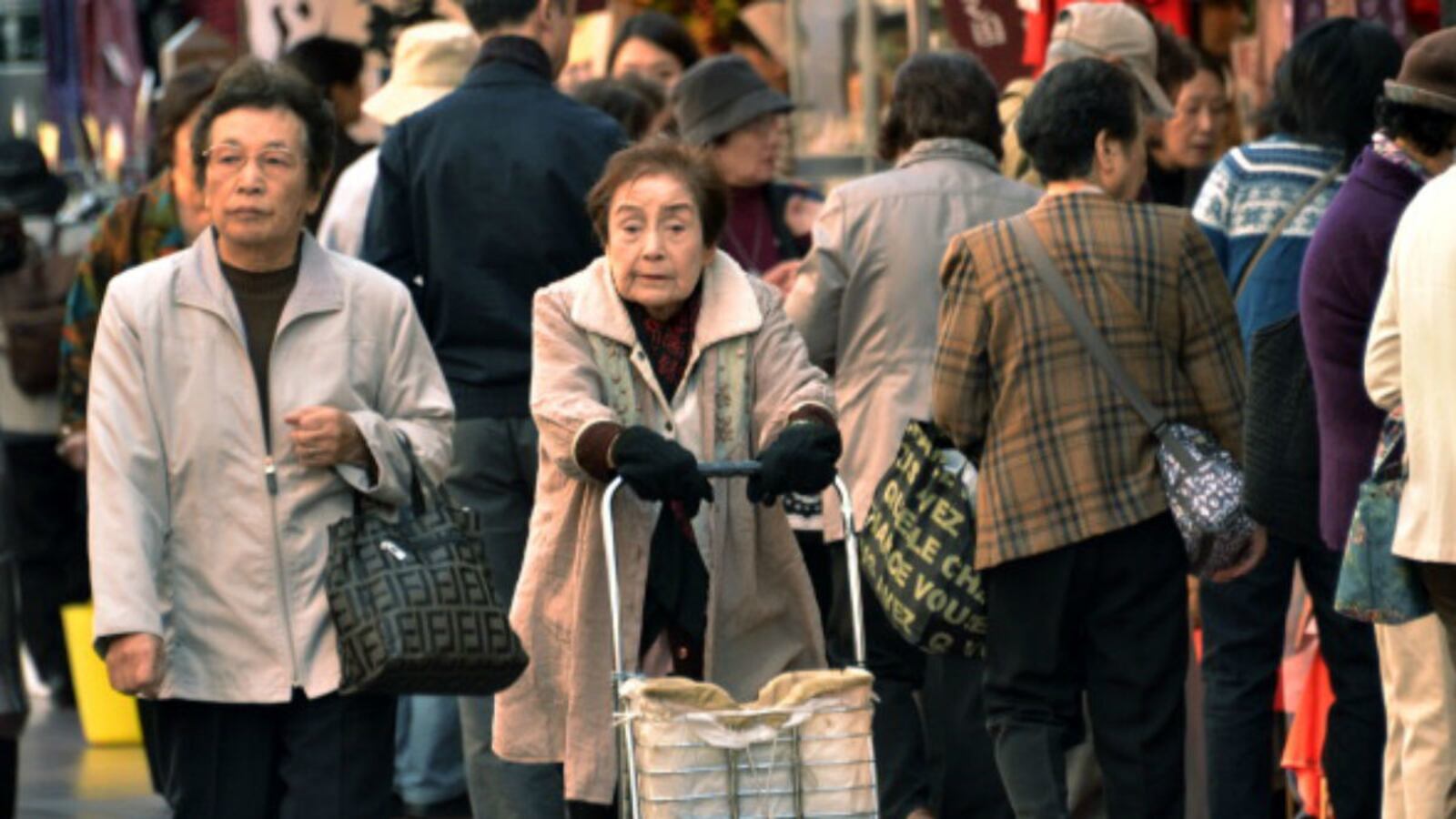
David Frum has written before about an important question facing many advanced democracies: how do you say "no" to the demands of the most elderly members of the electorate? America isn't the only country facing this task.
The Economist reports on a particularly striking example from Japan. It seems that many of Japan's elderly are hesitant to allow post-earthquake rezoning be done in ways that would favor the young:
In Onagawa, a fishing port in Miyagi prefecture that lost about a tenth of its 10,000-strong population in the disaster, the elderly have so far got their way, officials say. More than a third of residents were over 65 at the time of the tsunami, compared with 24% in Japan as a whole. As Toshiaki Yaginuma, a local official, recounts, many of the elderly lived in 15 fishing hamlets partly or wholly washed away by the tsunami. Instead of rebuilding them, the local government wanted to merge them into fewer, larger settlements. But it dropped the plan because of staunch opposition from the (mainly older) fishermen. They argued that each beach had its own history, culture and tradition, and they were worried that if they moved they would lose valuable fishing and oyster-farming licences that, some say, can bring in ¥8m ($100,000) a year.
Their sons and daughters have different priorities. Mr Yaginuma said that as well as wanting more access to shops, hospitals, jobs and schools, the young wanted the settlements to be merged to give them more chance of finding a spouse and raising a family. This is a telling factor in a country with one of the world’s lowest birth rates. Whole families are split over the issue, Mr Yaginuma says. “The elderly tell the young that they’re arrogant to think like that. The young say, ‘Father, you are not thinking about our future.’”
Finding compromises on such fraught social issues is key to the rebuilding, which suggests that it will remain painstakingly slow. In the past, Japan’s central-government bureaucrats would have run roughshod over those who resisted them. But the country’s Reconstruction Agency says the devastation is too widespread for a one-size-fits-all solution. And so it has been left to local governments to draw up reconstruction plans, funded from the national budget.
The central government still hopes that rebuilding stricken areas can be a blueprint for revitalisation of ageing communities elsewhere in Japan. It is allowing innovative places to become “special zones” that are light on regulation and heavy on such new ideas as smart energy grids and high-density living. The implication is that those who simply want to restore what was lost may not get generous treatment. Yet officials acknowledge that the elderly have a lot of voting power in Japan, and are hard to boss about.






